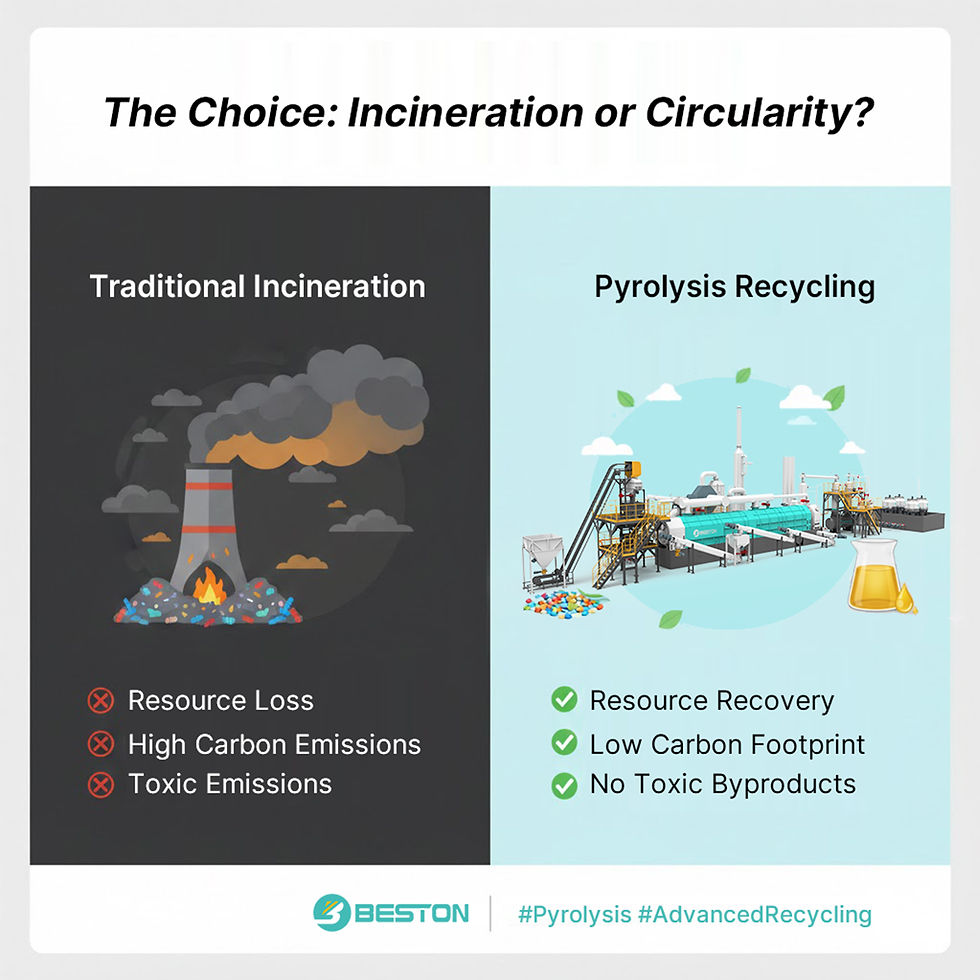Exploring the Ins and Outs of Biochar Production Equipment
- lee784287
- 2024年2月26日
- 讀畢需時 2 分鐘
Biochar production equipment encompasses a diverse array of machinery and technologies designed to convert biomass into biochar through the process of pyrolysis. This thermochemical decomposition occurs in the absence of oxygen, resulting in the conversion of organic materials into a stable form of carbon-rich charcoal known as biochar.
At the heart of biochar production equipment lies the pyrolysis reactor, where biomass undergoes thermal degradation at temperatures typically ranging from 350 to 700 degrees Celsius. This controlled environment ensures the efficient conversion of biomass into biochar while minimizing the release of harmful emissions.
The choice of feedstock plays a crucial role in biochar production, as different biomass materials yield varying qualities of biochar. Common feedstocks include agricultural residues, forestry waste, and organic byproducts such as coconut shells or rice husks.
Biochar production equipment is often characterized by its scalability and versatility, with systems ranging from small-scale batch reactors suitable for farm or community use to large-scale continuous pyrolysis plants capable of processing tons of biomass per day.

One of the key advantages of biochar production equipment lies in its ability to not only produce biochar but also generate valuable byproducts such as bio-oil and syngas. These secondary products can be utilized as renewable energy sources or as feedstock for further industrial processes, enhancing the economic viability of biochar production.
The quality of biochar produced depends on several factors, including pyrolysis temperature, residence time, and feedstock characteristics. High-temperature pyrolysis tends to result in biochar with greater stability and carbon sequestration potential, while lower temperatures may yield biochar with higher nutrient retention capabilities.
In addition to its role in carbon sequestration, biochar offers numerous benefits for soil health and agricultural productivity. When applied to soil, biochar improves water retention, nutrient availability, and microbial activity, thereby enhancing crop yields and resilience to environmental stressors.
Choosing the right biochar production equipment requires careful consideration of factors such as feedstock availability, desired output, and operational requirements. Whether investing in a small-scale biochar kiln for personal use or a commercial-scale pyrolysis plant for industrial applications, thorough research and consultation with experts are essential.
Furthermore, advancements in biochar production technology continue to drive innovation in the field, with ongoing research focused on improving efficiency, reducing emissions, and exploring novel feedstock options. From mobile pyrolysis units for on-farm use to integrated biorefinery systems, the future of biochar production equipment holds immense potential for sustainable development.



留言